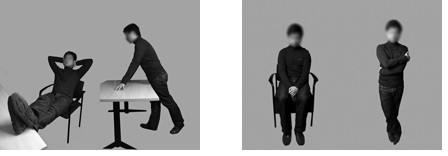Stress has been identified as a major health hazard. Chronic activation of our stress response dramatically increases the risk of hypertension, atherosclerosis, diabetes, immune suppression, reproductive problems and depression. Not surprisingly, the stress reduction industry is a very big tent. Everything from mindfulness to medication has been thrown at this modern menace. Now power appears to be the answer.
While stressors come in many shapes and sizes they appear to have one thing in common. Stress induces a sense of lack of control. Much of our understanding of this connection stems from the study of dominance hierarchies in social animals. Less control and predictability, and fewer outlets for frustration, stress these animals and damage their health.
For us humans, it is fair to say that power bestows control. One theory for the correlation of low socioeconomic status and poor health cites high stress levels (low control, predictability and frustration outlets) over lifestyle or access to care as the key variable. So how exactly does you increase someone's power?
From peacocks to people, power and dominance are displayed through very specific non-verbal behaviors. Expansive open postures with widespread limbs that maximize occupied space project high power. Closed postures with limbs against the torso that minimize occupied space signal the opposite. These postures are the product of our evolutionary history and have served to identify the "alpha" and the subordinate individual.
Recent research suggests that our posture not only reflects power it can produce it. In a remarkable demonstration of body affecting mind, investigators had subjects assume either high-power poses or low-power poses (two poses for one minute each). They then tested for sense of power and risk tolerance something that tracks with power. High-power posers reported feeling significantly more "powerful" and "in charge" than low-power posers. High-power posers were also more likely than low-power posers to take risks as assessed on a gambling task test.
Mind you, the subjects were led to believe that the study was about EKG recordings in different positions.
If you're still saying "yeah, right," this should silence the skeptics. The biological profile of the powerful differs from that of the powerless. Power holders have higher testosterone levels and lower cortisol levels than the powerless. Testosterone levels both reflect dominance and drive dominant behaviors in a ongoing feedback loop. High cortisol levels (the stress hormone) are the mark of the disenfranchised. Elevated cortisol appears to contribute to the higher incidence of stress-related illness in low socioeconomic populations.
The high-power posers experienced significant elevations in testosterone and decreases in cortisol. Other research has repeated these findings and extended them. High-power poses before a job interview (high power differential) were shown to allow better composure, more confidence, and more captivating and enthusiastic presentations.
High-power posture can change our physiology, psychology and behavior. It can make us more competitive while decreasing our stress levels. Thus far no troubling side effects have been reported. The price is right. Sounds good to me.
So puff up.
